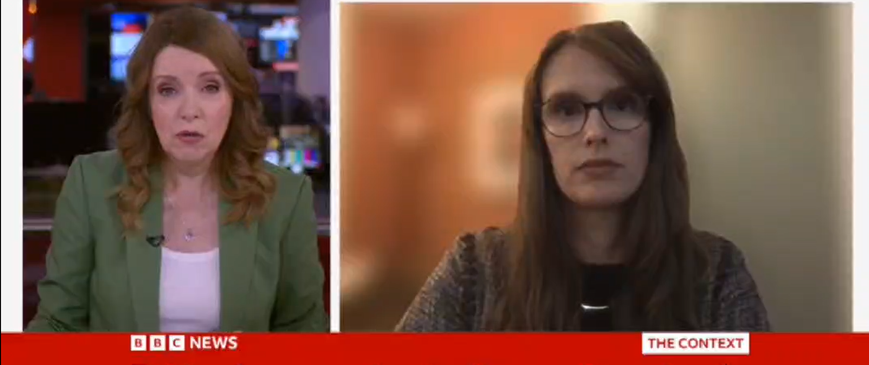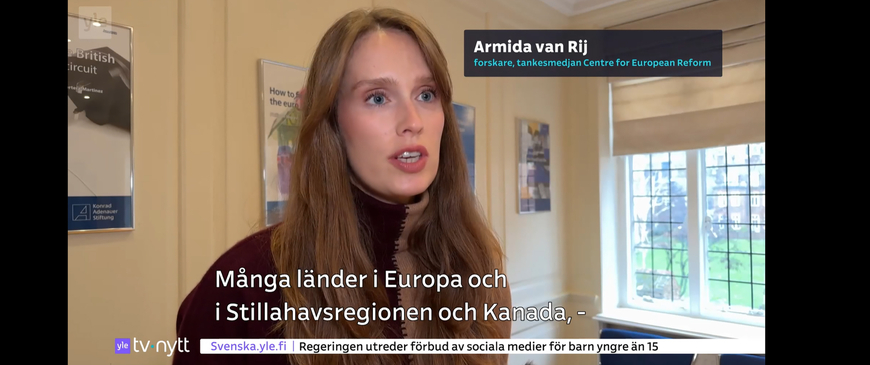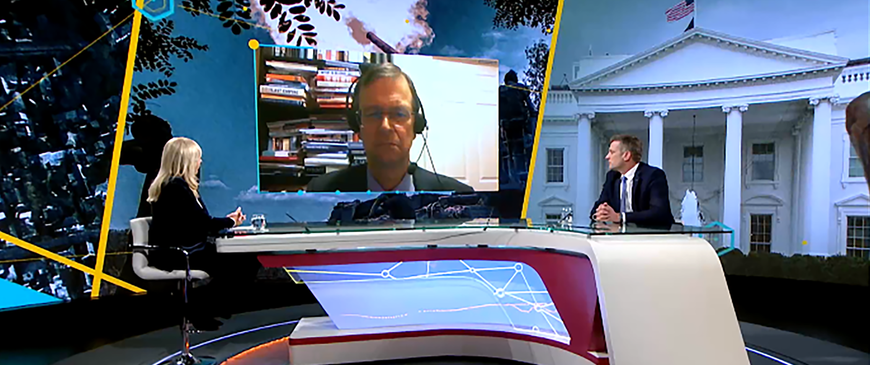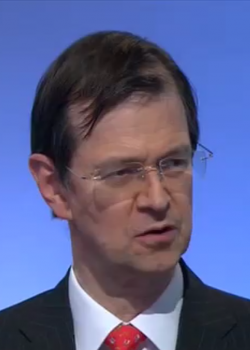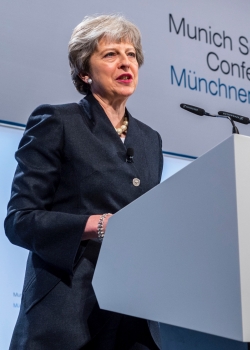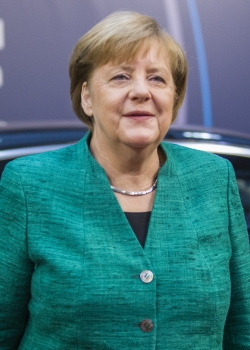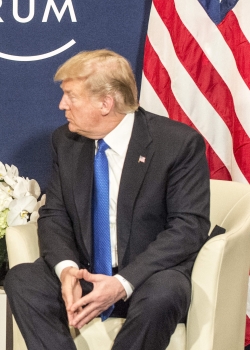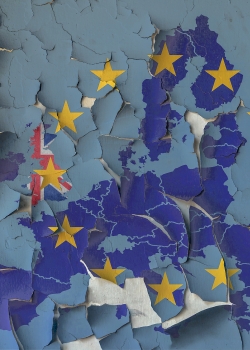Press
Cracking the EU
16 March 2018
Financial Times
John Springford, Samuel Lowe and Beth Oppenheim at the Centre for European Reform write comprehensively on why the Brits will have a hard time cracking the EU-27 in Brexit trade talks. Jim Brunsden examines if May can solve her customs conundrum.
BBC World News: Russia spy poisoning
15 March 2018
Ian Bond, director of foreign policy at the Centre for European Reform speaks on the recent Russia spy poisoning in Salisbury.
Meet the Brexit negotiators: David Davis and Michel Barnier
15 March 2018
Financial Times
“Davis, with his breezy self-confidence, sometimes finds it hard to connect with Barnier, who sticks firmly to the rigorous principles of the EU’s legal order,” says Charles Grant, director of the Centre for European Reform.
Britain hints at tougher blow against Russia: Stripping tycoons' assets
15 March 2018
The New York Times
For Russians, part of Britain’s draw was its offer of legal shelter; it refuses extradition requests from Russia. British institutions, meanwhile, have been lenient with wealthy foreign buyers, skimming through due diligence procedures intended to determine the source of a buyer’s funds, said Ian Bond, director of foreign policy at the Centre for European Reform. “This has been a very weak part of our money-laundering system,” Mr. Bond said. “Not enough questions are being asked about overseas shell properties. Estate agents are not asking the right questions — or any questions — about the beneficial owners.”
CER podcast: Security after Brexit
14 March 2018
Sophia Besch asks Camino Mortera-Martinez about future UK-EU justice and home affairs co-operation.
Tok FM: Jak próba zabójstwa Siergieja Skripala może wpłynąć na negocjacje Wielkiej Brytanii z Unią Europejską?
14 March 2018
Agata Gostyńska-Jakubowska speaks to Tok FM about the Sergei Skripal poisoning and Brexit.
Tillerson's ouster has allies hoping for coherence, but fearing the worst
14 March 2018
The New York Times
Whatever Mr. Tillerson’s failings, said Charles Grant, director of the Centre for European Reform, “he was a mainstream Republican, he was one of the grown-ups.” “On trade he was sensible and on Iran his view is the European view,” Mr. Grant added, “and it is worrying that the President may have a Secretary of State who might make it easier for him to pursue his course on Iran.”
Deutschland will klein sein, muss aber Großes wollen
13 March 2018
Der Standard
Nach monatelangem Hin und Her gibt es nun auch in Berlin eine neue Bundesregierung. Mit ihr muss sich Deutschland von alten, liebgewordenen Illusionen verabschieden – unter anderem von seiner Selbsteinschätzung, es sei ein höchstens mittelgroßes europäisches Land.
Deutschland hat sich lange den Luxus erlaubt vorzugeben, etwas zu sein, was es nicht...
Deutschland hat sich lange den Luxus erlaubt vorzugeben, etwas zu sein, was es nicht...
Global Britain – a slogan without substance?
13 March 2018
EurActiv
So are foreign affairs and security among the few areas where Brexit will leave little mark? “That’s the hope,” Sophia Besch, of the Centre for European Reform told EURACTIV. “There’s been quite a big effort from both sides not to have anything change.”
Trump stops short of blaming Russia over former spy poisoning
13 March 2018
Voice of America
Expectations are growing for a tough response from May, said Ian Bond, of the Centre for European Reform. "I think she'll be under a lot of pressure to show that the UK takes this very seriously. And that's partly because when she was home secretary, and indeed before that, the British reaction to the murder of [Russian defector] Alexander Litvinenko in London was seen as rather weak."
Could Jersey be the solution to Britain's Brexit trade deal with EU?
13 March 2018
The Express
The island could seal the deal according to trade expert Sam Lowe of the Centre for European Reform, who told EURACTIV.com that Jersey’s “strange relationship” with the EU could be a blueprint for Britain.Jersey is the largest of the Channel Islands, and is a Crown dependency of the UK with a special relationship with the EU.
Foreign Office policy of Global Britain is 'superficial rebranding'
12 March 2018
The Guardian
A paper by the Centre for European Reform shows both the EU and UK have declined to be specific about the kind of future foreign policy relationship they have in mind. The CER paper suggested a treaty-based alliance similar to that between the EU and Canada to guarantee consultation on sanctions policy, secondment of British officials to the European foreign policy service and regular meetings with UK officials before meetings of the EU foreign affairs council.
After Brexit – the danger of a 'Boris Border'
10 March 2018
The Irish Times
As John Springford of the UK Centre for European Reform wrote recently: “Theresa May must choose two of the following three options: an exit from the single market and customs union, no hard border with Ireland, and an all-UK approach to Brexit.”
Trump is no ally on trade for post-Brexit Britain
09 March 2018
EurActiv
If there were any faint hopes that the deep cultural and commercial ties between the UK and the US would secure a sweetheart free trade deal for the smaller UK after it leaves the European Union, they are now surely dashed.
Exceptional women who inspire Polish community in Britain
09 March 2018
Embassy of the Republic of Poland in London
The CER's Agata Gostyńska-Jakubowska is one of 18 women chosen by the Polish Embassy for a series of stories about modern Polish women, who through their work and commitment create a positive image of Poland on the British Isles.
BBC Radio 5 live - Drive: Trump and steel tariffs
09 March 2018
Sam Lowe of the Centre for European Reform spoke to Radio 5 live on the new tariffs President Trump has imposed on steel and aluminium to the US (from 14:15 mins).
Der ausgleichende Faktor wird fehlen
09 March 2018
BPB
Europa dürfte die Briten noch schmerzhaft vermissen, meint der Berliner Ökonom Christian Odendahl. Wichtige Errungenschaften der EU wie der Binnenmarkt und die Osterweiterung gingen direkt auf britische Bemühungen zurück.
Jersey holds the key to unlock Brexit dilemma
08 March 2018
EurActiv
Could the Channel Islands hold the key to unlock the Brexit puzzle? Trade expert Sam Lowe of the CER told EURACTIV that Jersey’s ‘strange relationship’ with the EU could be an acceptable ‘halfway house’.
May's trilemma
08 March 2018
Financial Times
John Springford, at the Centre for European Reform, helpfully sums up the PM’s headache in the following “trilemma”: the UK can have two of the following, but not all three at the same time:
Europe split on Nord Stream 2 pipeline as US warns against dependence on Russian gas
08 March 2018
Voice of America
Many Eastern European states also question whether the new pipeline will benefit them economically, says Noah Gordon, analyst at the Centre for European Reform, a London-based research group. “There could be bottlenecks through central Europe and Eastern Europe, and those places could see prices rise and they might be more exposed to a Russian political gas cutoff. Ukraine would lose about $2 billion a year in transit fees.”

